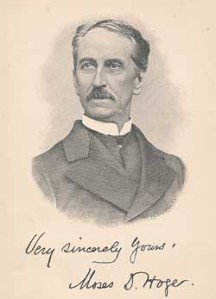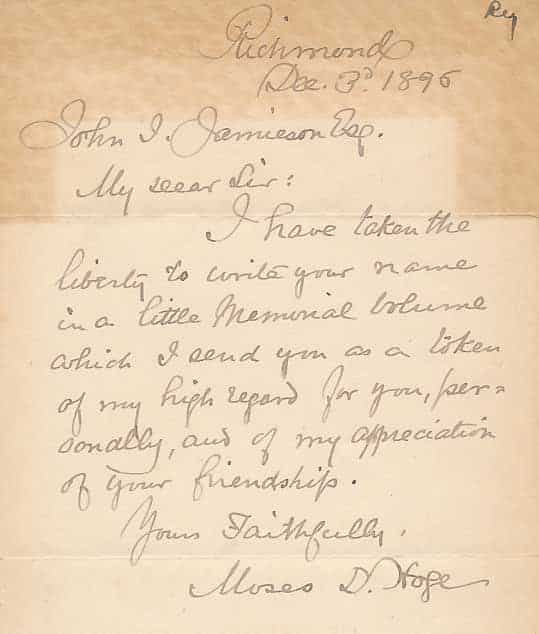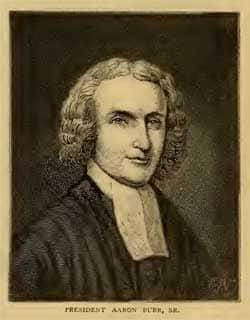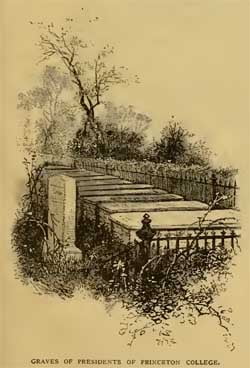In what he describes as a Sunday afternoon sermon, the Rev. Dr. Moses Drury Hoge delivered a sermon titled in publication, “Liddon, Bersier, Spurgeon”. The sermon is found in the volume THE PERFECTION OF BEAUTY, which was issued posthumously five years after Hoge’s death in 1899. Preaching from the text of First Samuel 25:1, Hoge first treats of the Anglican Canon, William Perry Liddon and then the Presbyterian Frenchman, Eugene Bersier. Lastly, Hoge turned his attention to the English Baptist, Charles Haddon Spurgeon [1834-1892]. Here excerpted is that portion of the sermon where Dr. Hoge paid tribute to Spurgeon. The parallels to our recent loss of Dr. R.C. Sproul are inescapable:
 One of the greatest lessons that I want to derive from this discourse, and one of the greatest truths that I want to impress is this, that there ought to be a very earnest looking for a different class of men from many of those who are coming upon the stage now, and we ought to be praying that God will raise up men of great endowments, of splendid gifts and large scholarship, and devoted consecration to his cause ; men qualified to become the leaders of the great sacramental army for the conquest of the world. There never was a time perhaps when there were as many mediocre men as there are now, men who do not attain, and who have no prospect of attaining that learning which makes the leader of the church, and which makes the whole church to rejoice that God has honored such men with such powers. That is the great want of the day in which we live.
One of the greatest lessons that I want to derive from this discourse, and one of the greatest truths that I want to impress is this, that there ought to be a very earnest looking for a different class of men from many of those who are coming upon the stage now, and we ought to be praying that God will raise up men of great endowments, of splendid gifts and large scholarship, and devoted consecration to his cause ; men qualified to become the leaders of the great sacramental army for the conquest of the world. There never was a time perhaps when there were as many mediocre men as there are now, men who do not attain, and who have no prospect of attaining that learning which makes the leader of the church, and which makes the whole church to rejoice that God has honored such men with such powers. That is the great want of the day in which we live.
I have often had occasion to remark that I regarded Spurgeon as the most widely useful man living, the greatest power for good in Great Britain, and now that he has been removed from his great sphere, if I were to say that he is lamented by all to whom he was known and honored, it would only be another way of saying that he was lamented throughout all Christian lands ; for where was he not known, and where was he not honored? That this is not an extravagant estimate I think will be evident when we consider into how many departments of useful labor he was permitted to enter and manifest the greatest efficiency and success. He was one of the few men of whom biography gives us any account, who was able to maintain his popularity from year to year without abatement. His was a popularity which, so far from weakening, grew and advanced with successive years. There never was a time perhaps when there was more originality, more freshness and power, more that makes a sermon rich and good, than during the last years of his life. It is not extravagant to say that he was the greatest power for good in Great Britain, when we remember that his church, or tabernacle, on the Surry side of the Thames, had in it six thousand sittings, and it often held a larger number of people than that, for many could not get seats, and were obliged to stand ; when we remember also that these sermons, every one of them, was reported and published that very week ; when we remember that sixty volumes of sermons were issued during his life ; when we remember that they were read, not only throughout Great Britain, but through Australia, Canada, the United States, West Indies, and wherever the English language is spoken — when we remember, again, that they were translated into a number of modern tongues, and thus went all over the reading world. That was but one of the departments of his great life work ; and, therefore, it is not an extravagant statement that was made by my nearest ecclesiastical neighbor, my brother of the Second Baptist Church, in an article which he published in the Religious Herald, in which he stated that, “England was but the platform on which Spurgeon’s pulpit stood, and his audience was the world around.” I have read many noble tributes to the memory of Mr. Spurgeon. I have read none finer than the one to which I refer by my Baptist brother.
But this was only one avenue of his access to the people. Look at the great orphanages which he founded, and which he found the means also of maintaining. Hundred and hundreds of poor, degraded and destitute children were taken from positions where they would have died in vice and squalor, and trained them to occupy places of usefulness and respectability in the world. Then remember that theological school which has, I believe, seventy or eighty students every year, young men whom he has sent out, with the impress of his own example and spirit upon them, to preach the gospel, as far as in them lay, just as he preached it. When we remember these things, we have some idea of the channels through which he reached the great outside world. I do not know of any history more instructive in another aspect of his convictions, how a man with the courage of his convictions, how a man who is intensely loyal to the truth, and fears nothing but what is wrong, will at last triumph over all opposition. Very few men have lived in England that were subjected to the ridicule and misrepresentation Mr. Spurgeon was during the early years of his ministry. Hundreds of stories were invented reflecting upon his manners, reflecting upon him in every way, and yet he pursued the even tenor of his way without even a murmur, with his bright, genial spirit unchilled by the abuse that was heaped upon him. He went on quietly, with the pluck and perseverance that characterized him, until the time came that he won over to himself all the parties in England, and not only all the parties, but all the different classes of society. The upper class, that at one time scorned him, recognized his worth at last. Men in the highest positions, in Parliament, and men of great learning recognized his virtues, and the great indebtedness Great Britain owed him, and acknowledged it in their public letters. He won, not only the regard of all classes, but the regard of all sects, which was a great triumph in a country like England, and perhaps no man has ever lived who has done more to bring all the people in harmony with one another, and promote good fellowship and kind Christian regard among the different denominations than he. It was his joy to know before his death, by the public testimony of the most eminent men in Great Britain, how he was esteemed by the men most qualified to speak on such subjects, both in the church and in the state.
I have, of course, my friends, been compelled to make this discourse much longer than I usually make my Sunday afternoon sermons, and I have protracted it more than I intended, such is the richness of the theme. You will see that I have tried to condense, as I went along, in order to compress into the limits of the discourse what I had to say in connection with those to whom I have called your attention this evening.
There are one or two other facts in regard to this man’s great usefulness in the world. It is sometimes said that Calvinism is dying out, that the world is abjuring Calvinism. My friends, I do not care to defend Calvinism this evening, because that is not my object or my present purpose. I want to say that the most popular preacher in the world was the most pronounced Calvinist in the world! No man has preached to as many people in the last twenty-five years as Charles Spurgeon. No man who ever lived during all the ages, during all the centuries has, during his life-time, come into contact with as many of his fellow-men on religious themes as Spurgeon ; and, during all that time, he has not preached a sermon perhaps in which Calvinism was not the fibre and the spirit of the discourse. Don’t tell me that Calvinism is becoming unpopular, when the man who could draw more people than any other man on earth was sure to deliver a Calvinistic discourse. When a conceited young theological candidate once made a disparaging remark about Spurgeon to a distinguished prelate in the English Church, he said, “Stop, young man ; there are eminent men in Great Britain, but the only man in England that can get an audience, if he choose, of thirty thousand people, in twenty-four hours, is Spurgeon.”
Then, another thing that deserves our attention is this. Such was his loyalty to the truth that he would sacrifice friends for it if need be. There never was a man more affectionate or loyal to his friends, but if need be, he would sacrifice friends before he would sacrifice a principle. That is a very rare thing in this world. He withdrew from the Baptist Union, three or four years ago, and in making the separation he parted from some of the most intimate friends of his youth and manhood. Inasmuch as he thought they held erroneous views, especially with regard to the divinity of our Lord, that was something he could not brook ; and therefore, while he never lost his respect or regard for them as men, yet ecclesiastically there was a separation.
It so happens that I have spent more time in London than in any city in the world except Richmond. There is no city that I know as well. Three months, at one time in my life, I did not go out of the city, and for thirty years I have availed myself of every opportunity that I could get of hearing Mr. Spurgeon preach. I have heard him oftener than any man south of the Potomac, and I think, therefore, that I have had some opportunity to judge and some opportunity to speak with the confidence that I have spoken with regard to this man. And strange to say, during all these years, I never sought to make his acquaintance, though I had hundreds of opportunities for so doing. The sole reason was that I did not want to encroach upon that time, for every moment of which I knew he had imperative use. The only interview that I ever had with him happened on this wise. I was at his church one Sunday, when he gave notice that immediately after the service the sacrament of the Lord’s Supper would be administered. You are aware that although he belonged to the Baptist Church, he was in favor of open communion, and on that occasion he gave an invitation that was so tender, to all Christians of all denominations that might be present, to unite in celebrating the sacrament, that I remained. When the service was over, as I was going out, and was passing down the aisle, I went within five or six feet of where he was sitting in a chair on the platform, and I went up and said, “Mr. Spurgeon, I have been a hearer of yours for thirty years, and I now embrace this opportunity of introducing myself, and of giving you my best wishes.” He asked me my name, and his reception was so kind and so affectionate that I have often regretted since that I did not avail myself of the many opportunities I had of knowing him personally.
I will never forget the first time I entered his church any more than I can forget the last, which is the time of which I have just spoken. The first time I visited his church, it so happened that I arrived a little late. Every seat was taken on the lower floor, as well as every seat in the first gallery. There are two galleries, one above the other. I went into the upper gallery, and succeeded in finding a seat at the farthest point that I could have been (almost in the roof of the house) from the preacher on the rostrum. He had not been preaching more than ten or fifteen minutes before I heard a stifled sigh or sob from the man who sat next to me. I had not noticed this man before in the great crowd, but I looked at him, and he seemed like a man whose business was in some menial occupation, dressed in his Sunday clothes. He was coarse and vulgar looking, with very hard features ; but the tears were streaming down his cheeks. He was quivering with emotion, and I said to myself, “If Mr. Spurgeon, standing at that vast distance, can so preach the gospel in its richness and sweetness as to cause every fibre in that man’s heart to vibrate, then he is preaching right, and that man is my brother in Christ Jesus,” and I felt like taking him by the hand, and telling him so.
Such is the man who has been taken away from us. If we regret that we did not avail ourselves of the opportunities we had of knowing personally the good and great that have lived to bless their generation, there is one compensation and one anticipation — in the long hereafter there will be time enough. In the world of recognition, in the world of reunion, in the world of holy fellowship, in the eternal future, there will be time enough to make the intimacies of an innumerable multitude of those who have so lived in this world as to bless their generations, and then gone home to the rest and recompenses of the eternal kingdom, into which kingdom and rest and joy may the Lord, in his infinite mercy, bring every one of us at the last, for his dear Son’s sake. Amen!
[excerpted from The Perfection of Beauty, by Moses Drury Hoge, D.D., LL.D. Richmond: The Presbyterian Committee of Publication, 1904, pp. 147-153.]
 Born into a family of ministers in 1818, Moses Drury Hoge was reared in the doctrines of the Christian faith. Twenty years later, Moses made a profession of faith. Entering Hampden-Sydney College in Virginia, he graduated as valedictorian of the class. His theological studies took place at Union Theological Seminary in Richmond where he was to study under the finest theologians of the South. Licensed into the Presbyterian ministry, he began to preach the Word to a large congregation at the Second Presbyterian Church of Richmond, Virginia. His time there as pastor would stretch for nearly fifty years.
Born into a family of ministers in 1818, Moses Drury Hoge was reared in the doctrines of the Christian faith. Twenty years later, Moses made a profession of faith. Entering Hampden-Sydney College in Virginia, he graduated as valedictorian of the class. His theological studies took place at Union Theological Seminary in Richmond where he was to study under the finest theologians of the South. Licensed into the Presbyterian ministry, he began to preach the Word to a large congregation at the Second Presbyterian Church of Richmond, Virginia. His time there as pastor would stretch for nearly fifty years.



